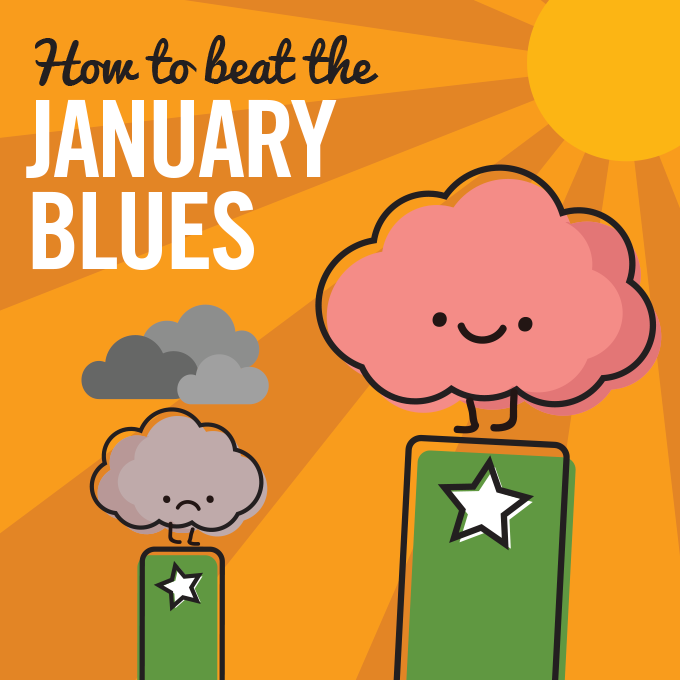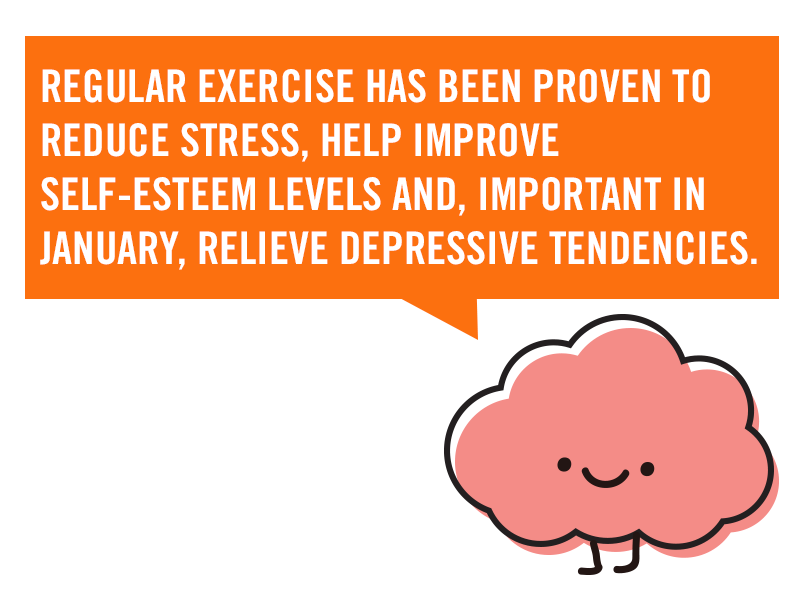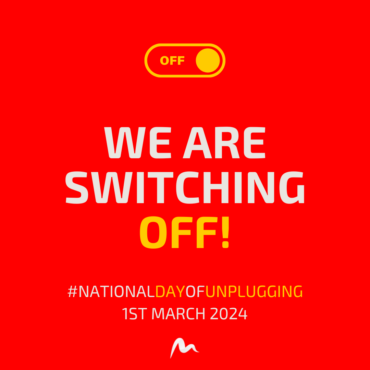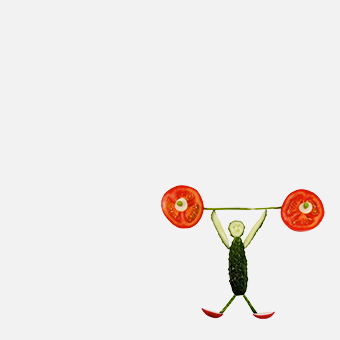On the whole, December is a tough act to follow. Take New Year’s Eve, for example. December ends with an enthusiastic countdown, whilst you’re dressed in your best outfit, champagne in hand, surrounded by your loved ones and a midnight kiss almost certainly guaranteed. But jump forward a few hours and that first morning of January is usually wiped out with grogginess and a pain your head, if you’re lucky, with only a few days of recovery before you’re back at your desk, as if the Christmas break didn’t even happen at all. Despite it being a new year we are also still faced with the same old season, and those dark, cold morning commutes into work.
Not only does January risk standing in the shadow of December’s merriment but the side effects of these Christmas and New Year events are also having to be dealt with in the first few weeks of the following month. We’ll all probably be carrying a few extra pounds, although sadly, not in our wallets, and as a result we won’t be feeling the freshest and most confident versions of ourselves. Our minds and bodies will both be exhausted after the organising and possible travelling over the festive season, and after the financial blow-outs have all come to an end, the budgeting will start, just at a time when you probably feel like you need a rest and a treat.
Although it comes around every year (on the same day, no less), we always seem to be caught off-guard by what has now commonly become known as “The January Blues”. And the worst thing about these depressive tendencies is the endless loop that can form around them; the mention of the January Blues makes us give in to them further, and therefore become even bluer.
Blue Monday
The most depressing of January’s days is officially the third Monday of the month, which now takes the title of “Blue Monday”. In 2005, the company Sky Travel coined the phrase after using an equation to analyse when people are most likely to book a holiday. This equation was drawn up by factoring in the weather, debt levels, monthly salary, time since Christmas, time since failing New Year’s resolutions, low motivational levels and the feeling of a need to take action. A few companies have since tried turning Blue Monday on its head, suggesting that it should be made a day for giving, or performing a random act of kindness to someone, but unfortunately this idea hasn’t caught on as a national holiday just yet.
Instead of giving into “The January Blues”, why not learn how to beat them? Here are our tips for giving yourself the best start to your year
Identify the problem
With the odds of a bright and sparky January swinging against you, it’s pretty much inevitable that you will be feeling a little bit down at some point over the month. The best thing to do, like with any negative emotion, is to first accept it, and then work out a way of turning it around. In order to work through a depressive feeling, you must first identify exactly what it is that is making you feel down, and then you’ll be able to make a concise and effective plan as to how to combat it.
Most likely, your negative mood will be brought on by the anticlimax of reality after the exciting events that have come before it. Ever heard that old phrase, “don’t cry because it has ended, but smile because it happened”? You’ll also have the comfort this month in knowing that you are absolutely not alone in feeling blue in January. Everyone will be a little worse for wear, and everyone has the power to do something about it too.
Give mindfulness a chance
This act of identifying and accepting emotions is a big part of Mindfulness, a form of meditation that has grown in popularity since being started, in modern times, by Jon Kabat-Zinn in Massachusetts in the 1970s. The practice of Mindfulness originates from ancient Buddhism, and there are Mindfulness-specific movements and exercises that can be carried out. However, the idea of Mindfulness is that it can be brought into your everyday life, and if you’re interested, January may be a great time to introduce it. One Mindfulness technique involves keeping a diary for a week, where you list out every big or small pleasant act that happens to you. That’s one good way of focusing on the silver linings around the grey cloud of January.
Eat your greens to rid the blues
Christmas is a time for goodwill, glad tidings and surprising yourself by eating more than you thought was ever humanly possible. On Christmas Day alone the average Brit consumes 7,000 calories, so it’s not even worth calculating how many extra calories we take in over the whole Christmas period. If you aren’t already feeling sick at the thought of more fattening foods by January, you may be tempted to carry on, with the excuse of, for example, finishing off the last chocolates or bottle of Baileys that the neighbours brought around on Boxing Day. Equally the gloom of the January Blues might encourage you to carry on comfort binging. However, filling ourselves with bad foods is the quickest way to make us feel bad. Having the courage to make a change such as improving your nutrition will soon have you feeling brighter from the inside out.
January, post-Christmas binge, is a popular time for people to try out a detoxifying or clean-eating diet. Although a drastic detox wouldn’t be recommended, focusing on foods that will help you flush out the festive toxins from your system will be good for getting yourself back into good health. Read more tips about detoxing in our article, here.
Have an Active year from the word GO!
Regular exercise has been proven to reduce stress, help improve self-esteem levels and, important in January, relieve depressive tendencies. This is because when you exercise, your body releases endorphins, which are chemicals that give your body a positive feeling of happiness. This exercise can take any form, even if it is just gentle or moderate activities like jogging, swimming, gardening or yoga. If you have previously been a regular fan of the gym or sport, and simply the chaos of Christmas has interfered with your regime, getting back into it as soon as you can will help settle your mind, as well as working off any excess pounds.
Ain’t No Sunshine
Seasonal Affective Disorder (also know as “SAD”) occurs to many people when the weather gets gloomy, but in fact, it can also relate to a form of depression that just occurs at the same time every year. This can present itself in a number of forms, and is usually self-diagnosable. SAD in the winter months can often be caused by the lack of sunlight, especially if, when working a 9am to 5pm desk job, you’re likely to be traveling into work and back home from work in darkness. When you do have the opportunity, at the weekends for example, wrapping up and getting out in the daylight is the best way to combat SAD – even making sure the curtains are open at home during the day will help.
Another easy way of overcoming SAD issues is to eat more foods that are high in vitamin D, which the body usually obtains from sunshine. These include oily fish like salmon and mackerel, liver and egg yolks. Taking supplements of cod liver oil will also raise your vitamin D levels.
Catch your forty winks
Despite the bank holidays and time off work, it’s likely that you won’t have had as much sleep over the Christmas break as your body needs. Late night wrapping, drinks’ parties, waiting up for Santa; there are many reasons why bedtime might be pushed back in December. Sleep is vital to your body’s development and wellbeing, and a lack of sleep can form a vicious cycle; not sleeping for long enough can cause a bad mood and depressive feelings, which in turn can interfere with your sleep. Make sure your body is getting quality sleep not just by going to bed earlier, but making sure the level of lighting, noise and temperature also aids your sleep too.
Be more sociable
The temptation when feeling blue might be to lock yourself away and stay alone, but this will only increase those sad feelings. So, wallow no more, and instead surround yourself with friends who will lift your mood. If you’re feeling the pinch after Christmas, why not invite people over for dinner instead of going out? That way you can also be in charge of the food you’re eating and stick to your healthy nutrition plan.
New Year, new resolution
With a new year comes New Year’s Resolutions, but often choosing an appropriate one can be a difficult task. Resolutions can either be too vague, for example “Get fit” or “Eat more healthily”, or bold and unachievable, like “Giving up all sugar”, which is likely to be broken and forgotten by the end of January. Instead, how about opting for a series of smaller resolutions that can be ticked off regularly and keep you going through the whole year? This could involve trying out something new, like reading a new book or taking part in a new exercise class each month, which will keep your interests heightened as well as providing you with new knowledge and skills. Or perhaps you can choose a resolution that will improve your happiness in other ways, for example, vowing to finally get around to organising that spare room? Make a good plan as early as you can on what you really want to accomplish and how exactly you’re going to do it. You’ll have a real sense of achievement when these tasks are completed, and the dread of the given-up New Year’s Resolutions from previous years will simply be a thing of the past.
Remember: January’s just one month in twelve
January may not hold much excitement, but that doesn’t mean the rest of the year will follow suit. As Sky Travel suggests, January is the time when most people plan on booking holidays and trips away, so why not factor in some adventures of your own for the year ahead? This may involve big investment traveling but even planning smaller events like meet ups with friends or exhibitions, and shows you want to see in the year, will give you a brighter outlook and some fun to look forward to.



















